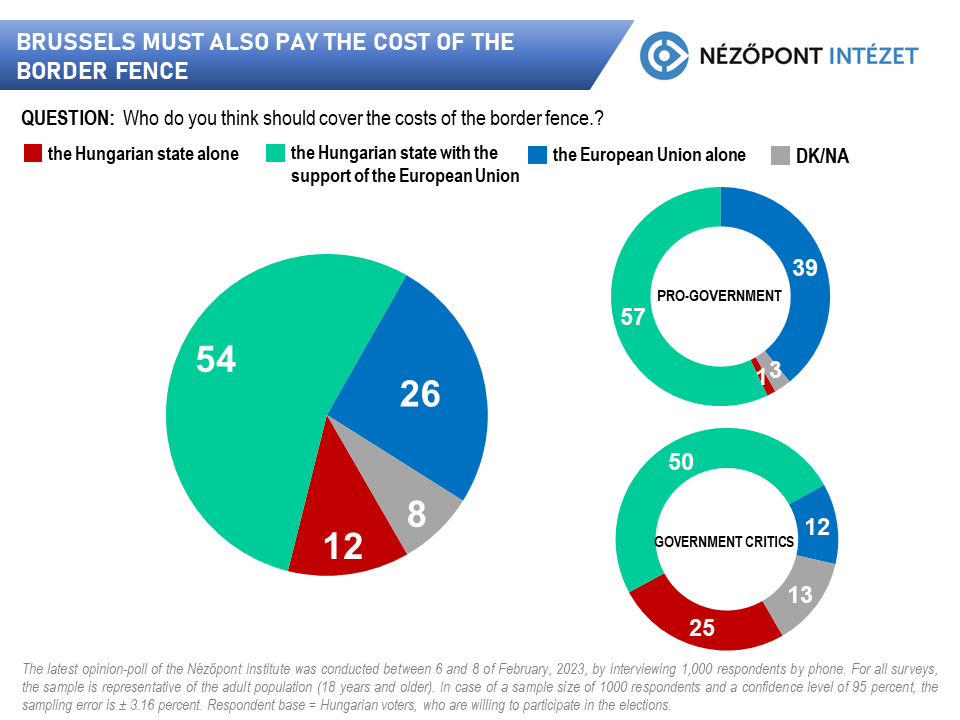Hungarians (80 percent), and even nearly two-thirds of left-wing voters (62 percent), believe that the European Union should contribute to the costs of border protection. Nearly three-quarters of young people (71 percent) and Budapest residents (73 percent) share the government’s view on the issue.
Migration to Europe and the need for securing external borders will be a key topic of the EU summit starting today. Hungary’s border fence is one of the most effective defence facilities in the European Union, which enabled Hungarian authorities to prevent 270,000 illegal border crossings last year alone. From 2015 until today, the cost of Hungary’s (and the EU’s) border protection has exceeded HUF 600 billion, for which the European Union has not provided any substantial financial assistance so far. The Nézőpont Institute asked Hungarians who they think should cover the costs of the border fence.

There is a national consensus (80 percent) that the European Union should also finance the costs of the Hungarian border protection. According to 54 percent of respondents, the Hungarian state and the EU should jointly finance the costs of border protection. A quarter of Hungarians (26 percent) believe that this is the EU’s sole responsibility, and half as many (12 percent) believe that it is the responsibility of the Hungarian state alone. In every social group, there is a majority of those who would like to see Brussels involved in the financing of border protection, which indicates a clear public demand for EU support in covering these costs.
The political divide does not fundamentally affect the perception of the issue either: almost all voters of the governing parties (96 percent) believe that the EU should also support financially the Hungarian border protection efforts, but even almost two-thirds of left-wing voters (62 percent) are on the government’s side on this issue. Even among voters who are generally more critical of the government, there is no difference in opinion: 73 percent of young people and 71 percent of Budapest residents would expect the EU to adequately finance the physical protection of the external borders.
Methodology
The latest opinion-poll of the Nézőpont Institute was conducted between 6 and 8 of February, 2023, by interviewing 1,000 respondents by phone. For all surveys, the sample is representative of the adult population (18 years and older) by gender, age, region, type of settlement and education. In case of a sample size of 1000 respondents and a confidence level of 95 percent, the sampling error is ± 3.16 percent. Respondent base = Hungarian voters, who are willing to participate in the elections.
